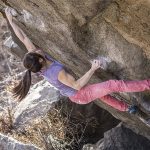Defender Mouthguard Laboratories announced the launch of Defender C.A.M.P., Concussion Awareness & Management Program. This is the first program of its kind offered by any company in the field of Sports Safety and Equipment, which provides complimentary cognitive Baseline Tests to aid in concussion management for athletes.
Cognitive Baseline Testing is used to provide a snapshot of an athlete's brain speed and accuracy. If an athlete suffers from, or is suspected of suffering from a concussion, an After Injury test can be performed when physical symptoms have resolved. The After Injury test results are compared against the Baseline and can be used by Doctors to determine when it is safe to return athletes to the classroom or playing field.
Wearing a custom-fit Defender Mouthguard provides the best defense against sports related dental injury and mandibular (lower jaw) impact. Designed in accordance with the guidelines established by the Academy of Sports Dentistry, Defender Mouthguards are custom fitted directly onto a dental model of the athlete's teeth. Multiple layers of shock-absorbing material are built between the upper and lower teeth allowing the mandible to maintain an open, relaxed position, keeping the temporomandibular joint (TMJ) from direct contact with the base of the skull, allowing for maximum natural defense during mandibular impact.
Since a concussion can be caused by a direct blow to the head, face or neck, and also sometimes by indirect blows where the force is transmitted to the head, Defender Mouthguards is partnering with Axon Sports to take a more pro-active approach to concussion management.
“With concussions on the rise and often under-reported and under-diagnosed, it is critical that athletes of all levels have access to cognitive Baseline testing as a vital procedure for concussion management and optimal health care,” said Joe Pipolo, founder of Defender Mouthguards. “As a leading sports safety equipment company, the safety and health of our customers comes first. Our C.A.M.P. program gets athletes, their parents, doctors and team coaches involved in safeguarding the integrity of each player's health.”
Through Defender C.A.M.P., anyone who purchases a Defender Mouthguard will also receive a voucher for a cognitive Baseline Test through Axon Sports. “We have made it easier and more convenient than ever by partnering with Axon Sports to provide these important tests to our athletes,” said Pipolo. The easy-to-use online test takes approximately 12-15 minutes for athletes to register and complete. Test results are immediately available and can be readily shared with parents, coaches, athletic trainers and doctors.
“We are pleased that Defender Mouthguards has chosen Axon Sports as its cognitive Baseline Test provider,” said Polly James, Axon Sports President and CEO. “Our goal is to broaden access to Baseline testing for all athletes. The Axon Sports Computerized Cognitive Assessment Tool (CCAT), combined with Defender Mouthguards' industry leading protective equipment, can help athletes play with confidence at any level.”
Defender Mouthguards, the official mouthguard provider for the University of North Carolina's Athletic Department, uses a proprietary impression and custom fit design technique enabling even athletes with orthodontic appliances to safely wear mouthguards for dental and mandibular impact protection in field and contact sports.
The Academy for Sports Dentistry states that custom fitted mouthguards offer superior fit, maximum protection and unrestricted comfort, which makes it easy to comply with the discipline of wearing a mouthguard. All states mandate the use of mouthguards during high school football, ice hockey, men's and women's lacrosse, field hockey and amateur boxing.
Boil and bite mouthguards purchased at sporting goods stores are softened in boiling water so that athletes can bite down on them and attempt to fit them to their teeth. Biting down on the softened mouthguard can thin out the chewing surface and distort the shape of the mouthguard resulting in poor fit and minimal protection.
Athletes will clench down on ill-fitting mouthguards to keep them from falling out. This clenching will reduce the athlete's ability to breathe effortlessly and communicate effectively while reinforcing the athlete's destructive habit of chewing the mouthguard. Athletes with ill-fitting mouthguards are known to dangle the mouthguards from their mouths so they can breathe while clenching down on the mouthguard. In the event of an injury during this time, the dangled mouthguard cannot provide the protection it was intended for. According to Pipolo,
“Athletes need to concentrate on the game rather than worrying about repositioning the mouthguard seconds before a potentially damaging impact. If states recognize the necessity of mandating the use of a mouthguard, mandates should require athletes to wear a properly-fitted, comfortable mouthguard that can be worn while the athlete is on or off the field and provide the protection it was designed for.”















